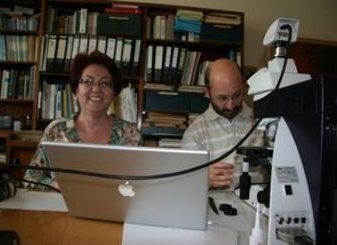
Taxonomy of the freshwater Oligochaeta (Annelida) in the Department of Antioquia, Colombia (2011) / in Phytotelmata of Northandean and Caribbean Regions of Colombia (2013)
Internship details
2011 and 2013
Royal Belgian Institute of Natural Sciences
Dr. Martin Patrick
Animalia – Annelida – Clitellata (Oligochaeta)
2011 internship:
The purpose of this project is to increase knowledge about the presence of freshwater Oligochaeta and their biogeographic range in Antioquia, Colombia. This project will identify specimens collected in 2002-2009 from different locations within the Department of Antioquia. These samples were taken from a variety of environments at many different altitudes and freshwater lotic and lentic habitats.
It is anticipated that the classification process may identify members of the taxa Naidinae, Pristininae, Tubificinae, Enchytraeidae. Identification will be carried out based on specialized taxonomic techniques to be learned at the Royal Belgian Institute of Natural Sciences (training provided by the Belgian National Focal Point to the GTI). The results of this project will be presented in an article for publication in an international journal.
2013 internship:
For the first time in Colombia, South America, research is underway to inventory the diversity of freshwater Oligochaeta associated with phytotelmata plants. The samples collected in the North Andean and Caribbean regions have been obtained primarily from phytotelmata in the Bromeliaceae and Heliconiaceae families. The unconfirmed results indicate a discovery of Naididae Amphichaeta leydigii, Dero (Allodero) sp., Dero (Dero) sp., Nais sp., Bratislavia sp., and Pristina amphibiotica.
The findings of this research will extend the known distributional range for several Oligochaeta taxa occurring in these unique microhabitats, will raise the number of registered species in the region, and will provide a basis for future studies related to the evolutionary, ecological, and biogeographical relations between Oligoqueta taxa in phytotelmata and taxa in underground aquifers.